Family travel can be hugely worthwhile – but it can also be intimidating. What if your child has an in-flight meltdown or pouts their way through Prague? Nomad Claudia shares her tips for planning a successful trip, whether the kids are babies, teens, or in between.
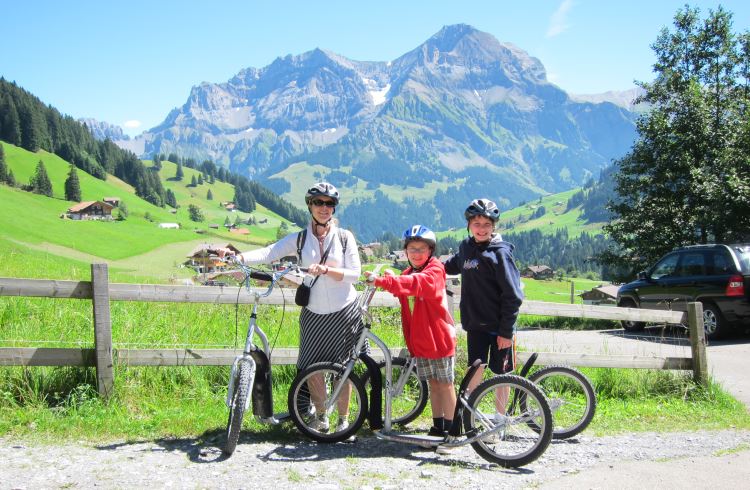 Photo © Claudia Laroye
Photo © Claudia Laroye
My first trip with my family occurred at the tender age of one. My parents and I were flying to Europe to visit my maternal grandparents. In an effort to ensure a smooth flight, my mother had given me an anti-nausea medication that, in addition to limiting air sickness, was meant to knock me out for the six-hour journey.
It had the opposite effect. I was awake and alert, running down the aisles of the plane with my mother chasing me. My father sought refuge in the back, pretending not to know us. He managed to sleep and arrived rested, while my mother greeted her family in a state of exhaustion.
At its core, traveling with family is a case of planning for the best, and preparing for the worst. No matter how far away the destination or how long the journey, the keys to family travel success lie in planning and preparation – along with large doses of patience, resilience, and a sense of humor.
- Planning a family trip: where to begin?
- First family trip? Start small
- Traveling with babies
- Traveling with toddlers
- Traveling with tweens
- Traveling with teens
- Traveling with other families
- Manage expectations
Planning a family trip: where to begin?
The starting point rests in some self-examination: what kind of holiday would you and your family enjoy? For aquatic fanatics, a holiday on a beach, river, or lake is perfect. Like art and history? The museums of New York, Paris, Florence, and Madrid are calling your name. Independent and adventurous? The jungles of Costa Rica, wide open spaces of Australia, and scenic European Alps await.
Of course, picking the destination is only half the battle. Issues of affordability, age, and ability come into play. Be realistic about your family’s capabilities, and plan for the type of trip that will work best for everyone.
First family trip? Start small
According to the US-based Family Travel Association (FTA), 33-40% of all leisure travel includes some form of family travel, so you’re in good company in planning trips with kids in tow. If you’re nervous embarking on a family travel journey, start small and stay local. Go camping or to grandma’s house for the weekend, or book a local hotel. If things go well, great! If they go off the rails, you can easily head home and try again another day.
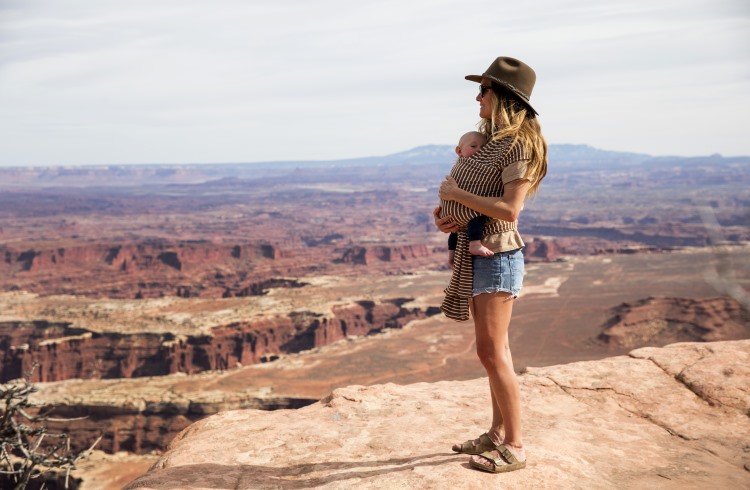
Traveling with babies
It may surprise you to know that traveling with a baby is one of the easiest ways to journey as a family. Wee ones are often physically attached to their parents, can be carried in a harness or backpack or pushed in a stroller, and aren’t prone to objecting to your destination choice.
For long plane journeys, pack favorite toys, blankets, and extra supplies of clothes, snacks and toys in a diaper bag to have close at hand. Nurse or feed on takeoff and landing to assist with ear pain. Upon arrival, get acclimated to your time zone and routine right away, even if it takes a few days due to jet lag.
Traveling with toddlers
The toddler years can be challenging and require parents to dig deep into their magic bag of travel tricks, especially on long flights and car rides. Ensure that bag is full of snacks, entertainment (books, tablets, toys), and a few favorite comfort items. Our magic travel bag included some surprises, including lollipops (not a usual food group) and new, small toys to motivate activity and good behavior.
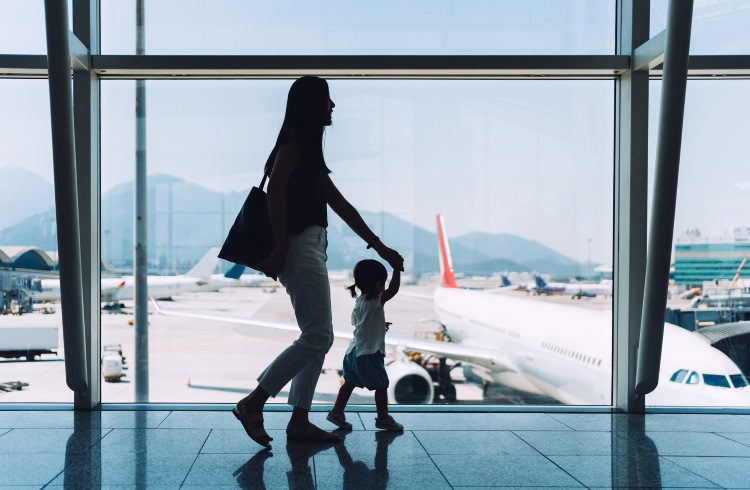
Booking accommodation with a kitchen is wise and cost-effective for any family trip, but it’s particularly valuable when traveling with younger children whose dining schedule and palate may not match that of Bali or Barcelona. Have a snack plan to avoid the full-on toddler meltdowns so often caused by the double whammy of hunger and fatigue.
Traveling with tweens
The tween age group is often the keenest to travel as a family and interested in a wide variety of activities. They may have opinions on destinations and trip styles, and should be included in travel planning if appropriate. If active on social media, tweens will want access to WiFi, though they may be more amenable to parental controls then teenaged kids.
Traveling with teens
Older kids crave independence and want an aspect of control over their lives, so involve them in trip planning to harness their creativity and ensure buy-in. We planned a highly successful three-week road trip visiting Banff, Canada, the destination of choice for our teenagers. A trip should include activities that teens will enjoy, whether it’s time by the pool or beach, or in the mountains, malls, or museums.
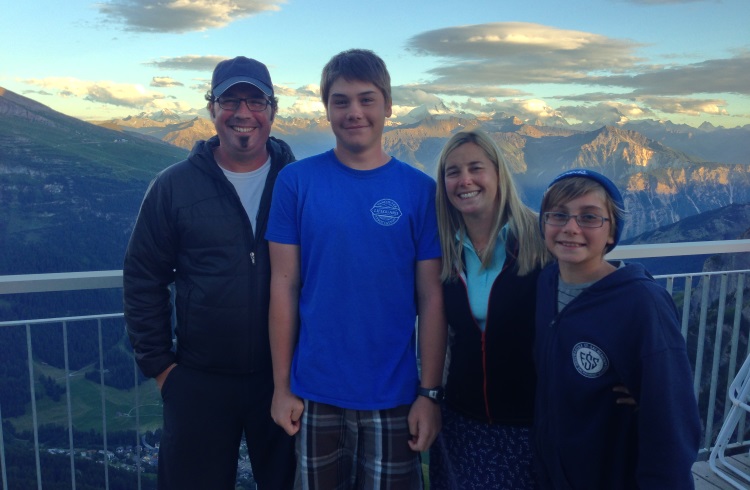
Ensure easy access to snacks and food to avoid the hangries, and recognize that apart from food, the most important thing for teens will be access to good WiFi. They’ll want to stay in touch with friends and post those vacation photos. But you should negotiate the amount of time they spend in the virtual world. Your family trip is about being present, together.
Traveling with other families
Multigenerational trips and vacationing with other families have many benefits, including sharing costs and child-minding. Be sure to choose your vacation partners from friends who share your parenting style and kids’ age ranges – mutual respect and trust will make holidaying easier. And, agree on everyone’s individual financial responsibilities before the trip. Nothing sours relationships and vacations like disputes over money.
Manage expectations
If you’ve planned for the best but are prepared for the worst, you’re managing expectations. As much as one plans for 100% smooth sailing, the act of traveling with kids can involve stormy seas, including accidents and medical emergencies. Trip necessities should include family travel insurance, and a first aid kit and bag of age-appropriate medicines, including prescriptions.
It’s also important to manage your own expectations about how your children may see and appreciate their family travel experience. Tamp down disappointment if your teen doesn’t share your enthusiasm for early morning beach walks, or if a dinner out is cut short by baby’s fussing or a toddler’s meltdown. Be open to the magic of your child playing with seed pods over a grate for two hours, or forging new friendships from smiles, rather than words.
Let it go, be patient, and focus on the positive wins of a family trip. One day you will laugh about the things that went wrong – really! In the meantime, embrace the beauty of being together and the places that will fill your forever memories.
Related articles
Simple and flexible travel insurance
You can buy at home or while traveling, and claim online from anywhere in the world. With 150+ adventure activities covered and 24/7 emergency assistance.
Get a quote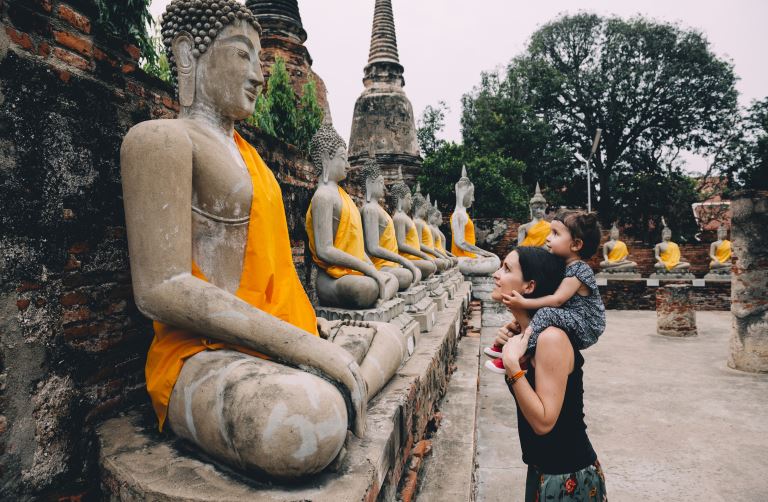
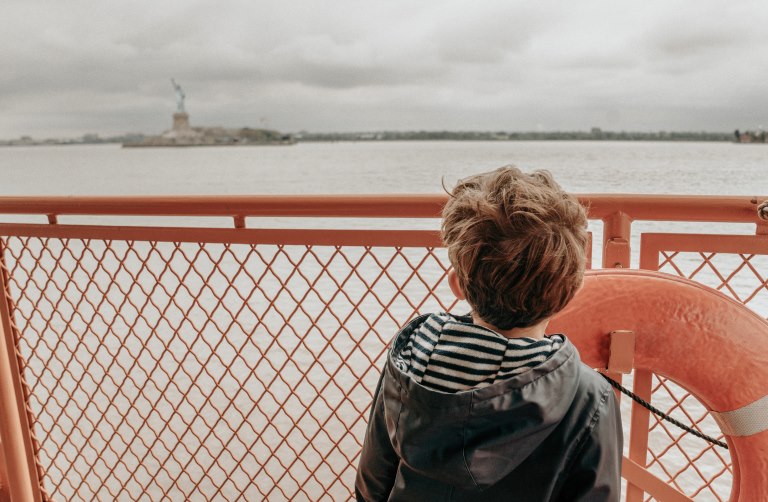

No Comments